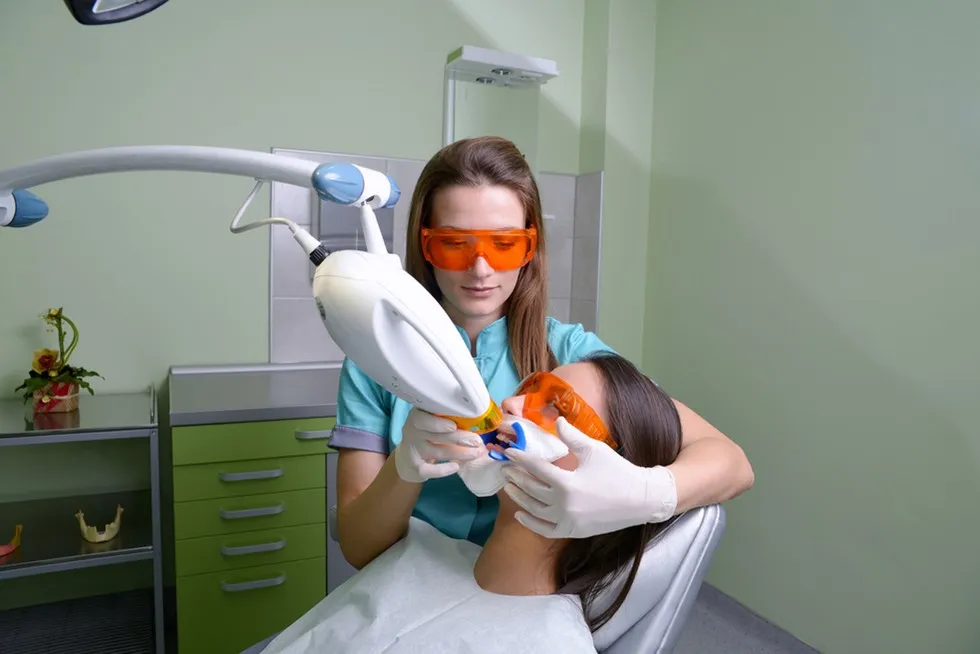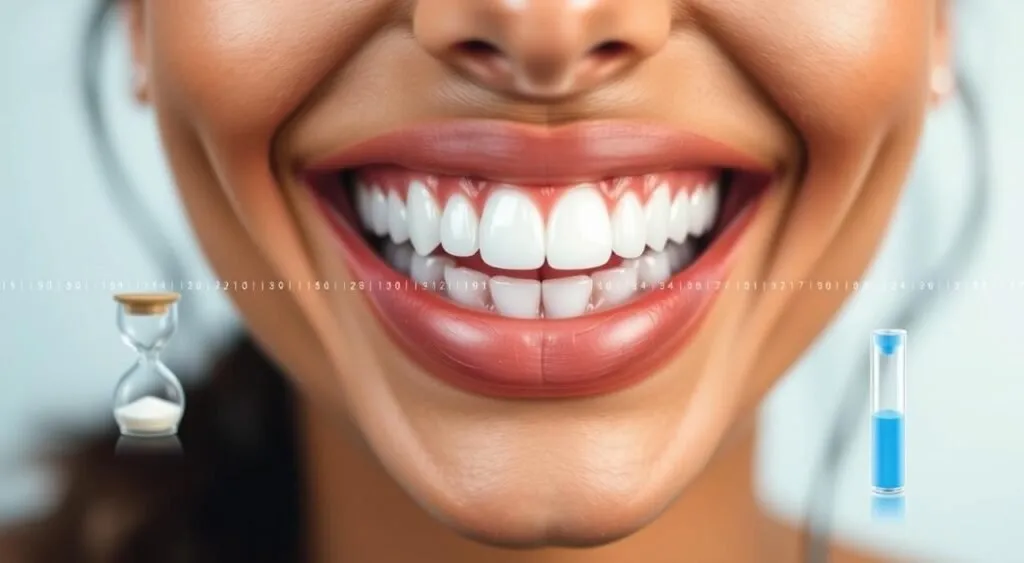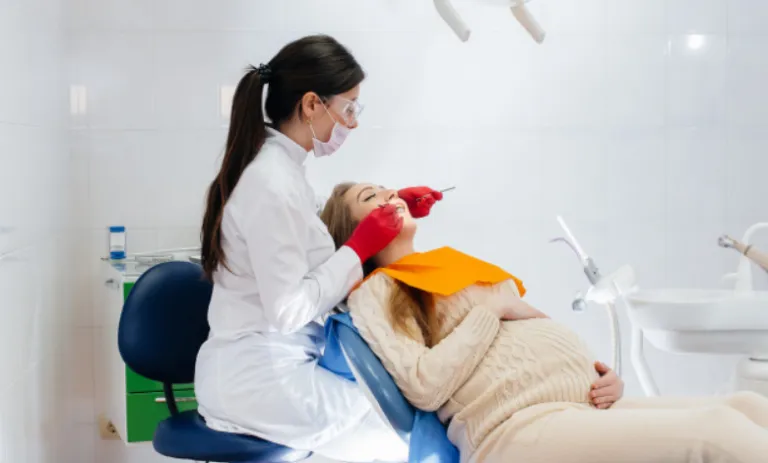Is Teeth Whitening Safe in Pregnancy? An Overview
Pregnancy is a time of significant change, and this extends to every aspect of a woman’s health, including oral hygiene. Many expectant mothers are concerned about maintaining their bright smiles, which naturally leads to the question, “Is teeth whitening safe in pregnancy?” The desire for a radiant smile often clashes with the need to prioritize the health and safety of both the mother and the developing baby. Navigating the world of dental care during pregnancy requires careful consideration, as certain procedures and products may carry potential risks. This article delves into the safety of teeth whitening during pregnancy, providing information and guidance to help you make informed decisions about your oral health while expecting.
Fact 1 Understanding Hormonal Changes During Pregnancy
Pregnancy hormones, especially estrogen and progesterone, surge during this period, leading to various physiological changes. These hormonal shifts significantly impact oral health. Increased blood flow to the gums can make them more sensitive and prone to inflammation, a condition known as pregnancy gingivitis. This condition often results in tender, swollen gums that may bleed easily during brushing or flossing. Furthermore, hormonal fluctuations can alter the balance of bacteria in the mouth, potentially increasing the risk of tooth decay and gum disease. Understanding these hormonal influences is crucial for anticipating and addressing oral health challenges during pregnancy, ensuring the well-being of both the mother and the baby.
Impact of Hormones on Oral Health

The profound impact of pregnancy hormones on oral health manifests in several ways. The surge in estrogen and progesterone increases blood flow to the gums, which can make them more sensitive and prone to inflammation. This heightened sensitivity makes the gums more susceptible to gingivitis, leading to swelling, redness, and bleeding. Hormonal changes can also increase the risk of tooth decay. The increased acidity in the mouth, due to morning sickness or changes in eating habits, can erode tooth enamel, making teeth more vulnerable to cavities. Understanding these impacts is vital for pregnant women to prioritize their oral hygiene and seek appropriate dental care to mitigate potential risks and maintain optimal oral health during this critical time.
Common Dental Issues in Pregnancy
Pregnancy often brings about several dental challenges. Pregnancy gingivitis is a prevalent condition, characterized by inflamed and bleeding gums. Another common issue is increased tooth sensitivity due to changes in the mouth’s pH and increased acidity from morning sickness. Furthermore, some women experience an increased incidence of tooth decay due to dietary changes and hormonal influences. Another challenge is the development of pregnancy tumors, which are benign growths that can appear on the gums. These issues underscore the importance of regular dental check-ups and diligent oral hygiene practices throughout pregnancy to prevent complications and maintain a healthy mouth.
Fact 2 The Ingredients in Teeth Whitening Products
The effectiveness of teeth whitening products hinges on the active ingredients they contain, primarily hydrogen peroxide or carbamide peroxide. These chemicals work by penetrating the enamel and oxidizing the discolored molecules within the tooth structure, thereby lightening the teeth. The concentration of the active ingredient determines the strength and speed of the whitening process. Over-the-counter products typically contain lower concentrations, providing gradual results, while professional treatments performed by dentists use higher concentrations for more immediate effects. Understanding the specific ingredients and their concentration levels is critical when evaluating the safety and efficacy of any teeth whitening product, especially during pregnancy, when potential risks to both the mother and the developing fetus must be carefully considered.
Hydrogen Peroxide and Carbamide Peroxide Explained

Hydrogen peroxide and carbamide peroxide are the primary bleaching agents used in teeth whitening products. Hydrogen peroxide, in varying concentrations, directly whitens the teeth. Carbamide peroxide breaks down into hydrogen peroxide, offering a slower but more sustained whitening effect. Both compounds work by releasing oxygen radicals that break down stain-causing molecules within the tooth enamel. The concentration of these peroxides determines the intensity of the whitening process and potential sensitivity. Professional dental treatments often use higher concentrations of hydrogen peroxide for faster results, whereas over-the-counter products contain lower concentrations to minimize risks. Understanding the mechanisms and concentrations of these ingredients is key to assessing the safety of teeth whitening, particularly during pregnancy.
Potential Risks of these Ingredients
While generally considered safe, hydrogen peroxide and carbamide peroxide used in teeth whitening pose potential risks, especially during pregnancy. The primary concern is the potential for ingestion or absorption of these chemicals. Although the amount absorbed is typically minimal, the effects on a developing fetus are unknown. The increased sensitivity of gums during pregnancy also raises the risk of irritation and inflammation from whitening agents. Furthermore, excessive use or high concentrations of these chemicals can lead to tooth sensitivity and enamel damage. Pregnant women should consult their dentists about the safety of these products and consider safer alternatives to mitigate any potential risks to both themselves and their unborn children. The use of whitening products that could cause any harm must be avoided.
Fact 3 The American Dental Association’s Stance
The American Dental Association (ADA) plays a critical role in providing guidance on dental health practices, including teeth whitening. The ADA’s position emphasizes the importance of safety and evidence-based recommendations. Generally, the ADA recommends that pregnant women consult their dentists before undergoing any cosmetic dental procedures, including teeth whitening. This is because the potential risks associated with certain whitening agents during pregnancy are not fully understood. The ADA promotes the use of products with the Seal of Acceptance, which signifies that the product has been evaluated for safety and effectiveness. Following the ADA’s guidelines helps pregnant women make informed decisions and ensures their dental treatments are both safe and beneficial.
Professional vs. Over-the-Counter Options

The decision between professional and over-the-counter (OTC) teeth whitening options is a crucial one, especially for pregnant women. Professional whitening, performed by a dentist, often utilizes higher concentrations of bleaching agents like hydrogen peroxide, providing quicker and more dramatic results. However, it is essential to discuss the risks and benefits with the dentist. OTC products, such as whitening strips, gels, and toothpastes, contain lower concentrations and are generally considered less risky but also less effective. While OTC options may seem convenient, they might not be appropriate during pregnancy due to potential risks. Pregnant women should consult their dentists to determine the safest and most effective whitening method, balancing efficacy with the health of both the mother and the developing fetus. The choice of dental care providers during pregnancy is paramount.
ADA Guidelines for Pregnant Women
The American Dental Association (ADA) provides specific guidelines for dental care during pregnancy, emphasizing the importance of preventive care and informed decision-making. The ADA recommends that pregnant women maintain good oral hygiene by brushing twice a day with fluoride toothpaste and flossing daily to prevent dental issues. The ADA also advises pregnant women to inform their dentists about their pregnancy to ensure the safe use of dental treatments and medications. Routine dental check-ups and cleanings are encouraged to monitor and address any developing dental problems. While the ADA does not explicitly ban teeth whitening, they advise pregnant women to consult with their dentists. This consultation is essential to assess the potential risks and benefits, ensuring both the mother’s and the baby’s safety.
Fact 4 Safer Alternatives to Teeth Whitening During Pregnancy
For pregnant women seeking brighter smiles, safer alternatives to teeth whitening are available. Natural teeth whitening methods, such as brushing with baking soda or using activated charcoal, are popular options. However, these methods can be abrasive and should be used with caution to avoid enamel damage. Maintaining excellent dental hygiene is another essential aspect. Regular brushing with fluoride toothpaste, flossing, and professional cleanings can effectively remove surface stains and improve the overall appearance of teeth. Dietary changes also play a crucial role, as avoiding foods and drinks known to stain teeth, such as coffee, tea, and red wine, can help maintain a brighter smile. Consulting with a dentist to discuss these alternatives and receive personalized recommendations is always advisable.
Natural Teeth Whitening Methods

Natural teeth whitening methods offer a gentler approach to brightening your smile during pregnancy. Baking soda is a mild abrasive that can help remove surface stains when used sparingly. Activated charcoal is another option; it absorbs stains and impurities, but it can also be abrasive. Both methods should be used with caution, as excessive use can damage enamel. Oil pulling with coconut oil is another alternative, believed to reduce bacteria and promote oral health, indirectly contributing to whiter teeth. Regular dental check-ups and professional cleanings can effectively remove surface stains and improve the overall appearance of teeth. Consulting with a dentist before trying any natural methods is crucial to ensure they are safe and suitable for your specific dental needs.
Dental Hygiene Practices
Maintaining impeccable dental hygiene is paramount during pregnancy, not just for oral health but also for overall well-being. This includes brushing teeth at least twice a day with fluoride toothpaste, flossing daily to remove plaque and food particles, and using an antibacterial mouthwash as recommended by a dentist. Regular dental check-ups and professional cleanings are crucial for preventing and treating dental issues. Pregnant women should also pay close attention to their diet, reducing the consumption of sugary snacks and beverages that can contribute to tooth decay. Additionally, staying hydrated by drinking plenty of water helps to stimulate saliva production, which naturally cleanses the mouth. Following these practices ensures a healthy mouth and contributes to a healthy pregnancy.
Fact 5 Consultation with Your Dentist
The most important step for pregnant women considering teeth whitening is a thorough consultation with their dentist. During this consultation, the dentist will assess the patient’s oral health, discuss the potential risks and benefits of different whitening options, and provide personalized recommendations. This includes evaluating the current condition of the teeth and gums, as well as considering the patient’s overall health. The dentist can offer insights into safer alternatives and guide the patient towards the most appropriate course of action. The dentist’s expertise ensures that any chosen treatment aligns with the mother’s and baby’s safety and well-being. Open communication with the dentist is essential to achieving the best results.
Importance of Professional Advice

Seeking professional advice from a dentist is crucial, especially during pregnancy. Dentists have the expertise to assess the patient’s oral health and provide tailored recommendations. They can evaluate the potential risks and benefits of various treatments, including teeth whitening, considering the unique circumstances of pregnancy. This professional guidance ensures that any dental procedures are safe and appropriate. Dentists are also equipped to identify any underlying dental issues that need attention. They can explain how to maintain good oral hygiene and recommend safer alternatives to teeth whitening if necessary. Relying on professional advice is a proactive step in maintaining optimal oral health while ensuring the well-being of both the mother and the baby during pregnancy.
Personalized Recommendations
Dentists are uniquely positioned to offer personalized recommendations based on an individual’s oral health and pregnancy-related considerations. During a consultation, the dentist will conduct a thorough examination, taking into account the specific needs and risks associated with each patient. The dentist can then suggest the most appropriate approach, whether it involves avoiding teeth whitening altogether, opting for safer alternatives, or proceeding with professional whitening under strict supervision. Personal recommendations can include guidance on oral hygiene practices, dietary adjustments, and the use of specific products that are safe for pregnant women. This tailored approach ensures that the chosen dental treatments are both effective and safe, promoting a healthy smile and overall well-being throughout pregnancy.
Conclusion
The question of whether teeth whitening is safe during pregnancy requires careful consideration. While the desire for a brighter smile is understandable, it is crucial to prioritize the health and safety of both the mother and the developing baby. The key takeaway is the importance of consulting with a dentist before undertaking any teeth whitening procedures. The dentist can assess the risks, provide personalized recommendations, and guide expectant mothers toward the safest and most effective options. By following these guidelines, pregnant women can make informed decisions, maintain good oral hygiene, and enjoy the confidence of a healthy, radiant smile throughout their pregnancy.
